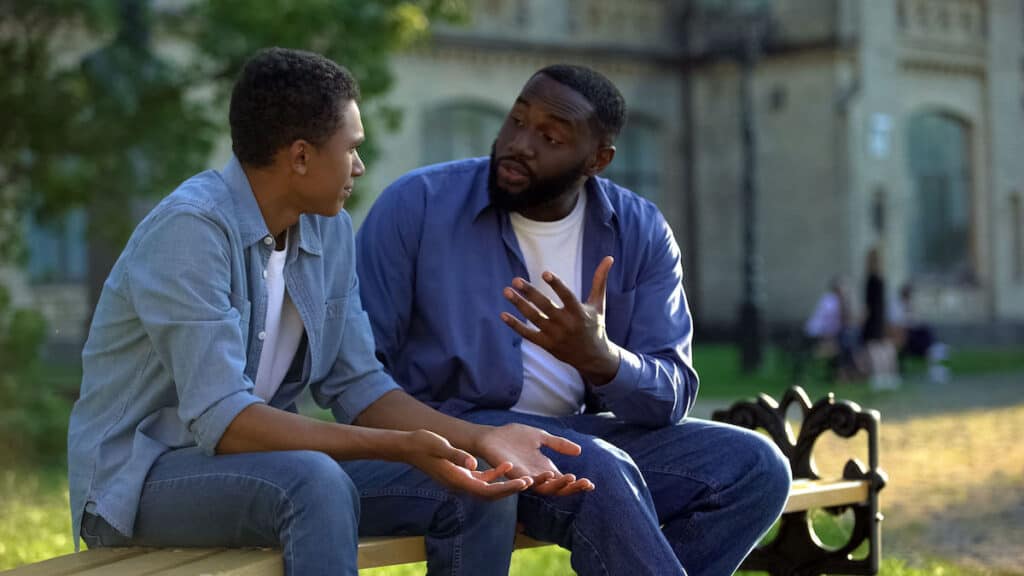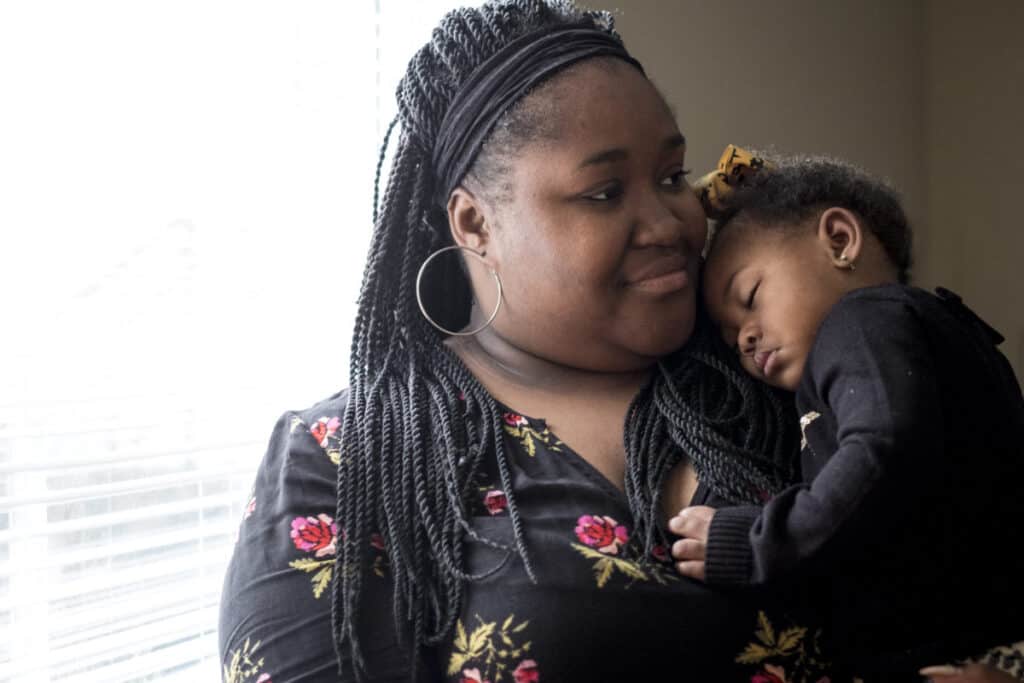If your teen is going to college with a disability, they (and you) have a huge job getting ready. Your teen might need extra support and extra time to go through the application process and prepare for higher level schoolwork.
But there are a lot of ways to prepare during high school. Your IEP team should help you create a transition plan that focuses on college readiness. Here are 6 steps you can take to help your teen head off to college ready for the challenge.
1. Start planning for college early
School after high school is called postsecondary education. There are different kinds, for example: a 4-year college, a 2-year community college, or a technical school. Whatever path your child decides to take, preparing early will help.
Here’s what you can do:
- Prepare early — even in 9th grade. Start to think about college and learn about the application process
- Talk to your child about their goals. Find out what they want from college, and help them learn about the options
- Make sure your child’s guidance counselor and transition coordinator are part of the IEP team. Talk to them about your child’s strengths and challenges, and what kind of support they might need in college
- Make sure that your child’s IEP includes goals about being ready for college. Do they have support for learning study skills and taking advanced courses?
- Learn about the options. There are special college programs, disability support services, and even scholarships that can help your child through college
2. Include college goals in the IEP and Transition Plan
If your child is planning to go to college, their IEP and transition plan should include goals and support for that future. Make sure these goals are reflected in the vision statement and the IEP. Ask the team what services and accommodations would help them achieve these goals. Ask about study skills classes and other supports for taking advanced classes and test-taking.
Talk to your child and together think carefully about their college vision:
- Why do you want to go to college? What do you want to study?
- What kind of job do you think you’d like to have after college?
- What kind of place do you think you want? City or rural town? Big school or small? Technical or academic school?
- What kind of support do you think you’ll need in a college environment?
Don’t forget to address social skills, life skills, and self-advocacy skills. College is a very different social environment compared to high school, and your child will be expected to do many things on their own that parents, counselors, and teachers have always done for them.
3. Get ready to apply to college
Applying to a college usually includes:
- Taking tests like the SAT or ACT (usually in junior year of high school)
- Sending in high school transcripts and SAT or ACT scores
- Collecting letters of recommendation
- Filling out an application (often online)
- Filling out the Free Application for Federal Student Aid (FAFSA) to see how much federal aid you may be able to get (Fill out the form here)
Once you know which colleges your child wants to apply to, start researching their requirements.
Go to the college’s website or call their admission office to ask questions. Don’t forget to ask about disability services to see how your child could get accommodations.
Read more about getting accommodations for taking the SAT or ACT.
4. Encourage your student to take advanced courses
Make sure your child has support to take advanced classes if they can manage them
- If they want to go to college, they should push themselves to take high-level classes like honors or AP classes if that’s possible
- Aim high and get support. If your child can handle an advanced course but only if they have support, ask for it! Support could be a tutor, a study class, or some extra accommodations
- AP means Advanced Placement classes. At the end of the class, students take an AP exam that is the same for students at all high schools. Many colleges value AP classes when looking at applicants
- Make sure the IEP gives your child as much support as possible to take these kinds of classes
Remember:
IDEA gives all students a legal right to a free and appropriate public education (FAPE). If “appropriate” for your child means taking tough classes or preparing for college, then you can push for the support they need!
5. Encourage your child to do meaningful activities outside of classes.
These are called extracurricular activities and they can help colleges see your whole child, not just their grades.
Extracurricular activities can be harder for people with disabilities to access and feel comfortable doing. But it’s worth trying to find accessible activities that your child likes. You may have to make special arrangements to make sure the group is accessible for your child.
Look for opportunities to help them get involved
- Sports? Music, dance, or photography? Working with children or animals? Search for places where your child can do these kinds of activities
- Talk to your child about how they want to spend time after school. Try to find things they like and that have some meaning. (For example, not only playing video games! But if they like video games, look for a class in video game design)
- See if there are clubs at school they’d like
- Look for volunteer activities at a place they like. Anything that gives them work experience will look good to colleges and help them get a job later on
6. Learn about colleges with disability services and special programs
Now that you’ve talked with the IEP team and started to prepare your child for college, it’s time to research specific schools and see how they can support your child.
Most schools have a Disability Services Center where your child can get help as they start college.
There are often services to help students who need extra support. For example:
- They might be allowed to take their tests in a private classroom, or get extra time
- They can have a volunteer note-taker write down the notes from each class (Your child won’t know the note-taker personally and won’t have to tell their classmates they have a disability)
- Regular check-ins with the professors
- Reading assignments in other formats like audiobooks or large print
Make sure the services your child needs are available at the college they choose!
- Colleges that have good support for students with learning disabilities.
- Examples of support services colleges may offer to students with disabilities.
****************************
Louisiana Only:
Go to our Disability Services Finder to find colleges in Louisiana that have programs for students with intellectual disabilities. (en español)
Open the Education & Employment section, and choose College and University Education.
There are some colleges in Louisiana that have special programs for students with intellectual disabilities.
They give students intense extra support, offer specialized classes and social opportunities, and help students find appropriate internships for real world work experience.
- Baton Rouge Community College: Program for Successful Employment (PSE)
- Bossier Parish Community College: Program for Successful Employment (PSE)
- Nicholls State University: Bridge to Independence
- Southeastern Louisiana University: Lions Connected (UC)
- University of Louisiana at Lafayette: UL LIFE Program
- LSU Health Sciences Center: PAY Check Program
Go to their disability services web page.
Massachusetts only:
Go to our Disability Service Finder to find colleges in Massachusetts that have programs for students with intellectual disabilities. (en español)
Open the Education & Employment section, and choose College and University Education.
****************************
Some schools also offer Comprehensive Transition and Post-Secondary (CTP) Programs
A CTP program is a special program of study that some colleges offer. It’s designed for students with intellectual disabilities, and gives them extra support.
It includes services like:
- Academic advising
- A chance to take some specialized classes and some typical classes
- Internships or job training
- Social skills mentoring
Check out the Federal Student Aid website for a list of US colleges that offer CTP programs. It will also tell you about some special grants you can apply for to help pay for college.
Parents and caretakers: if your teen is going to college with a disability, you’ve got this! With good transition planning, you can set them up with the right support for a great college experience.
**************
Louisiana:
These are the colleges in Louisiana that have special programs for students with intellectual disabilities.
They offer students intense extra support, offer specialized classes and social opportunities, and help students find appropriate internships for real world work experience.
- Baton Rouge Community College: Program for Successful Employment (PSE)
- Bossier Parish Community College: Program for Successful Employment (PSE)
- Nicholls State University: Bridge to Independence
- Southeastern Louisiana University: Lions Connected
- University of Louisiana at Lafayette: UL LIFE Program
- LSU Health Sciences Center: PAY Check Program
**************
Learn More:
- My student with disabilities is transitioning to adult life – how do we find resources for them?
- Going to College: A Resource for Teens with Disabilities
- Services for Students with Disabilities
- Finding a College Program for Students with Autism (and other disabilities)
- Autism and the College Experience



